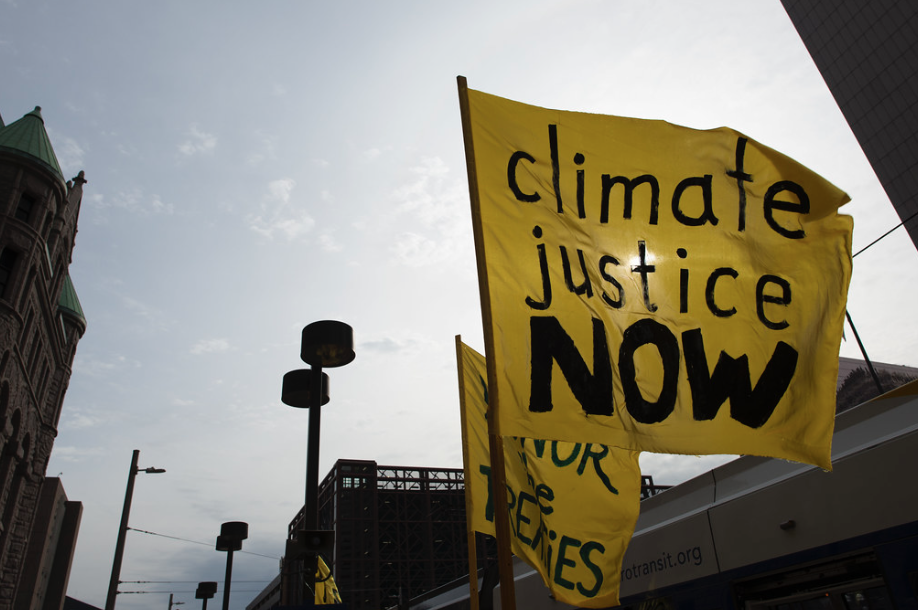Carbon Pricing and Environmental Justice: Addressing Inequities and Investing in Vulnerable Communities
By DaJuan Gay, Maryland Organizer

As the effects of climate change continue to impact our communities, leaders across the state are increasingly prioritizing climate resiliency and environmental justice in their planning efforts. Some examples include Howard County’s Climate Forward, the Resilience Authority of Annapolis and Anne Arundel County, Montgomery County’s Climate Action Plan (2021), and countless other infrastructure projects. Yet, with each plan comes voices from residents and elected officials asking how to pay for it.
While community leaders are working hard to figure out how to pay for climate resilience, fossil fuel companies have been earning record profits. This unprecedented financial success of big oil companies raises concerns regarding the ethical distribution of wealth and calls for reevaluating the use of profits to address environmental justice issues. Carbon pricing is one way for states to fund climate change policy by placing a fee on carbon emissions. A well-designed carbon pricing initiative incentivizes fossil fuel companies to decarbonize while protecting the consumer from rising costs and investing funds in clean infrastructure.
The Climate Crisis and Environmental Justice Act (CCEJ) proposes two fees, the funds from which will be disbursed into two separate funds. Half of the revenue collected will go into the Benefits Fund and be distributed to low- and moderate-income households. The other half of the revenue will establish the Infrastructure Fund for projects that mitigate greenhouse gas emissions and build statewide climate resilience, including investments in projects directly located within and providing meaningful benefits to underserved and marginalized communities.
The most common criticism of carbon pricing is that higher fuel prices will be passed down to the consumer, harming those who cannot afford higher fuel costs. The CCEJ addresses this with a polluter pays, no-pass-through provision, which prohibits fossil fuel companies from passing the cost of emissions onto consumers. This helps ensure that polluters are held accountable, while the vast majority of low- and moderate-income households do not experience increases in their cost of living because of the policy.
The CCEJ’s Benefits Fund also helps protect vulnerable communities from financial harm. Half of the revenue from the CCEJ will be used to provide direct support to low- to moderate-income households and energy-intensive businesses, which would be most impacted by increasing fuel costs.
The other half of the revenue will be directed to the Climate Crisis Infrastructure Fund, which aims to stimulate local economic development and employment in the state while leveraging additional capital from various sources. At least 50 percent of this revenue will fund projects that directly benefit disproportionately affected communities.
The CCEJ can be a powerful tool to incentivize the reduction of fossil fuel emissions and investment in clean energy infrastructure while providing protective benefits to Maryland’s most vulnerable populations.